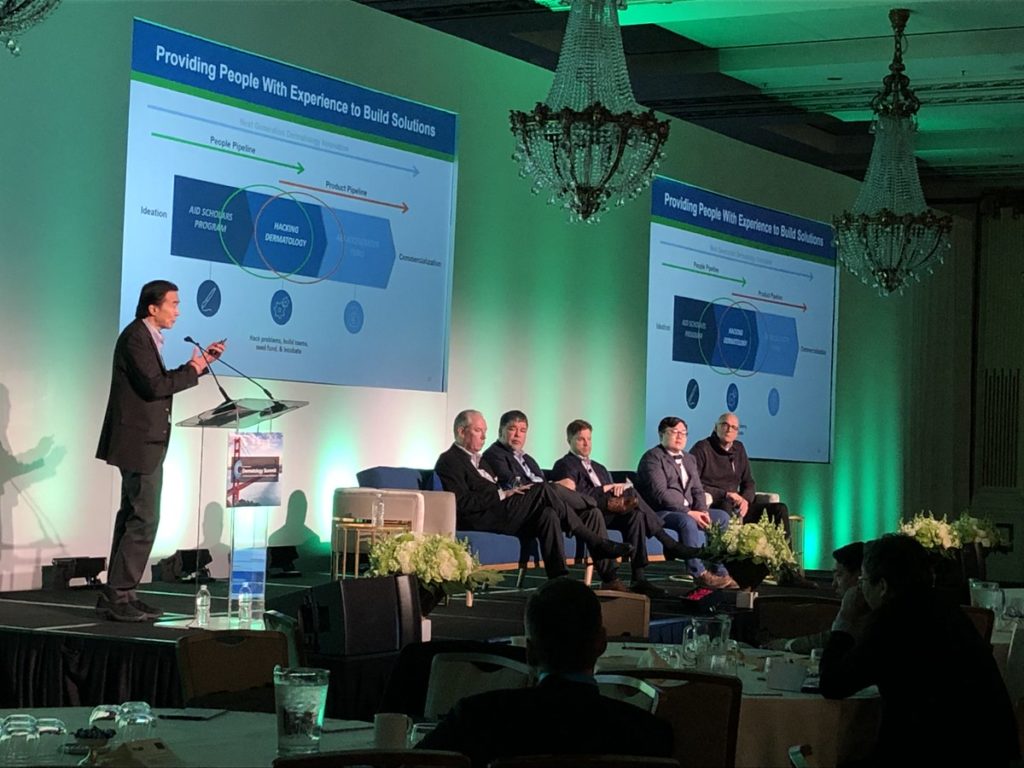Advancing Innovation in Dermatology is pleased to make available our collection of scholar articles, industry news, and interviews with the professionals accelerating innovation in skin health and patient care. This content is yet another way beyond our in-person and virtual events to strengthen the community of innovators we aim to build and maintain.
READ FULL ARTICLE | leo-scitech.com

For the sixth year in a row, JPM week kicked off with the Dermatology Summit at the Palace Hotel in San Francisco. Organized by Advancing Innovation in Dermatology (AID), the conference included expert industry insights and a variety of panel discussions, fireside chats and networking events.
Included in the events was a Leadership Sponsor Panel, moderated by AID President William Ju, “Building Next Generation Innovations” that featured our very own Michael Sierra along with Ray Miller and David Smith of Pepper Hamilton LLP, Neal Walker of Aclaris Therapeutics and Steve Xu of Northwestern’s Center for Bio-integrated Electronics.
The discussion provided great insight into our vision for the dermatology industry and highlighted the strategies, goals and overall mindset behind the newly-formed AID Accelerator Fund, an initiative aimed at creating a one-of-a-kind innovation ecosystem for the dermatology community.
Since its inception in 2011, AID has focused on generating ideas to drive advancement in the field of dermatology. Panel moderator and President of AID, William Ju, MD, FAAD, opened the discussion by explaining the organization’s commitment to identifying industry “pain points” and eluding to what he calls the “People Pipeline” and the “Product Pipeline”.
For William “innovation productivity” requires nurturing talented individuals that have the potential to solve key challenges in dermatology. To help do this, AID offers a 10-month, virtual curriculum-based scholar’s program, modeled on the Magic Wand® Initiative started at Massachusetts General Hospital (MGH) Dermatology, which is open to residents, fellows and early-career researchers with an interest in innovation. Panelist Steve Xu commented, “Dermatology attracts some of the brightest and most accomplished students in medical school. There is a tremendous talent pool, but many of them don’t know about the industry side.”
Each panelist agreed that the true challenge lies not just in conceptualizing and nurturing academic ideas but turning them into real assets.
So, as noted during the discussion, AID took things a step further in 2018 and, with the help of LEO Pharma and Pepper Hamilton, launched The AID Accelerator Fund, which aims to bridge the gap between institutional funding and traditional venture capital for very early-stage, breakthrough technologies by offering seed-money and hands-on support and mentorship.
Ray Miller spoke of his passion for AID’s mission, saying, “While it’s a relatively small amount of capital, the benefit is in the mentorship and relationships. AID brings clinical, business and legal expertise to the table. We are able to lay out the steps, milestones and overall plan of action for participants. Many early-stage startups simply don’t have that type of knowledge, which is necessary to succeed.”
Echoing Ray’s statement, David Smith added, “The value lies in the ability to provide strategic infrastructure to move great science forward into assets that can be developed. At such an early-stage, when you don’t really have a team, the initial high-risk funding is magnified in value.”
A key component of our accelerator fund is another new development: Hacking Dermatology. The year-long, tech-oriented hack-a-thon initiative lays out dermatology-focused challenge prompts and brings together diverse teams of people to gain hands-on experience and work to develop product solutions. MIT’s Hacking Medicine Institute, AID, and LEO brought this idea to life.
Michael Sierra believes the initiative, “Allows us to take part in not just incremental innovation, but higher-risk projects with the potential for greater impact.”
For everyone involved with AID, a major goal is to continue expanding our reach through academic partnerships with chemistry departments, engineering departments, business schools, innovation teams and more.
Partnerships with promising start-ups are just as important as academia and we believe that radical innovations are not going to come from the industry itself, they are going to come from the outside. We are looking for ideas and technologies that have the potential to be transformative, similar to Air BnB and Uber; that is where we think the truly great opportunities lie.
The idea of “putting skin in the game” was a key theme of this year’s Summit. It’s not just about making drugs but affecting patients’ lives and focusing on the larger goal of creating an innovation ecosystem.
For all involved, our affiliation with AID and The Derm Summit represents an opportunity to give back to the dermatology community and provide real and lasting value in our industry. We all look forward to the year ahead as we continue working to make dermatology a shining example of a specialty that champions innovation and collaboration.

Advancing Innovation in Dermatology Inc. is a nonprofit, tax-exempt charitable organization under Section 501(c)(3) of the Internal Revenue Code.
Donations are tax-deductible as allowed by law. | Privacy Policy
© 2022 Advancing Innovation in Dermatology Inc.. All Rights Reserved.